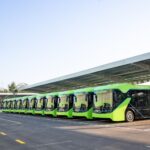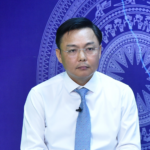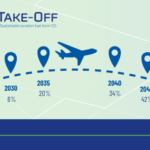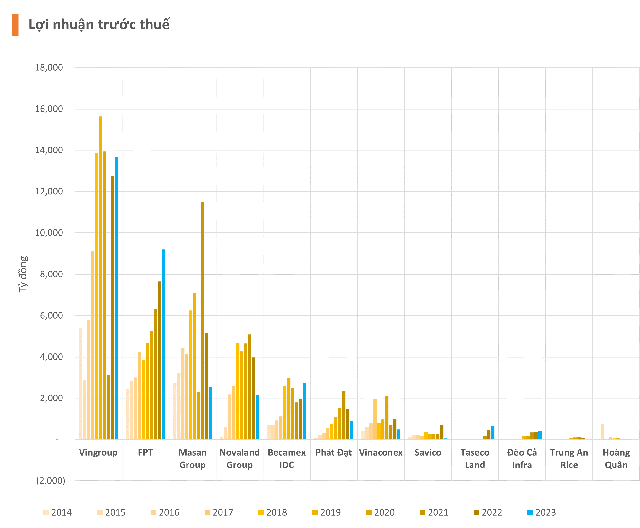According to a McKinsey report, the revenue generated from net-zero emissions products could reach up to $12 trillion annually by 2030. Following this global trend, many countries, including Vietnam, have pledged to achieve net-zero emissions by 2050. McKinsey also estimates that pursuing this goal will require an investment of $9.2 trillion annually until 2050, with $6.5 trillion allocated yearly for low-emission assets and supporting infrastructure.
**Creating a Competitive Advantage**
As per the latest disclosure by Yahoo Finance, Apple tops the 2024 environmental-friendliness ranking with a revenue of $274.9 billion attributed to sustainable development, accounting for nearly 70% of its total revenue. Sustainability is becoming a mandatory requirement in international supply chains, rather than just an added brand value. Ikea, for instance, has committed to using wood only from sustainably managed forests, while Lego has pledged to utilize 100% renewable energy in its operations. This not only helps them avoid stringent regulations but also creates a competitive advantage.
This serves as an important lesson for Vietnamese businesses to not only meet international requirements but also strengthen their position in the global market. At the recent conference, “Hanoi and the Northern Provinces – Promoting Green Production and Sustainable Development in the Digital Economy,” Mr. Truong Van Cam, Vice President and General Secretary of the Vietnam Textile and Apparel Association (VITAS), shared that many enterprises have transitioned from using coal and oil to more environmentally friendly energy sources, such as electricity and biomass. They are also adopting eco-friendly materials like silk, ramie, hemp, banana, pineapple, and bamboo, which meet market demands and enhance the indigenous value of the textile industry.
Ms. Nguyen Thi Minh Hai, Head of Sustainable Development at LGG, a leading garment company, emphasized that the “green” trend is becoming inevitable for all stages and enterprises involved in the textile supply chain. Therefore, LGG has focused on constructing solar energy systems and utilizing renewable energy sources since the early stages of building new factories and projects. Additionally, LGG has transitioned from coal-fired boilers to biomass clean fuel boilers and invested in wastewater treatment systems for potential reuse in irrigation or aquaculture.
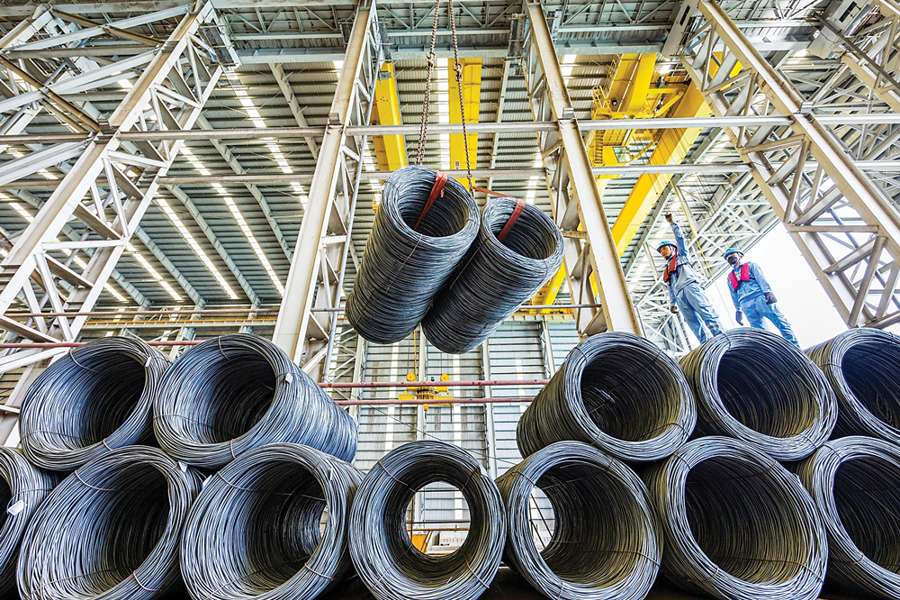
Trung Quy Textile and Garment Company shared that eco-friendly materials currently account for 50% of their production, with a target of reaching 70% by the end of 2025. The company’s internal data revealed that revenue from green products increased by 30% in the first nine months of 2024, helping to offset the negative growth of traditional items, which decreased by 20%.
Canifa, another prominent company, reported that their products with natural origins accounted for nearly 70% of their sales, and the revenue from this group increased by 30% in the first nine months of 2024 compared to the same period in 2023. By using American cotton, Australian wool, bamboo fiber, and coffee, they cater to customers who demand sustainability and are willing to invest in green production to elevate their brand value.
Similarly, Acecook Vietnam has installed rooftop solar power systems on its office building and factory in Ho Chi Minh City. Recently, to fulfill the extended producer responsibility (EPR), the company partnered with a reputable third-party organization to collect and recycle paper packaging. Companies like Tan Hiep Phat and Trung Nguyen have implemented blockchain technology to track production processes and trace product origins, helping to promote Vietnamese brands globally. VISSAN, another ambitious company, has set a bold goal of achieving net-zero emissions.
*The article was published in the Vietnam Economic Magazine, Issue 47-2024, released on November 18, 2024. To read the full article, please visit: https://postenp.phaha.vn/chi-tiet-toa-soan/tap-chi-kinh-te-viet-nam*
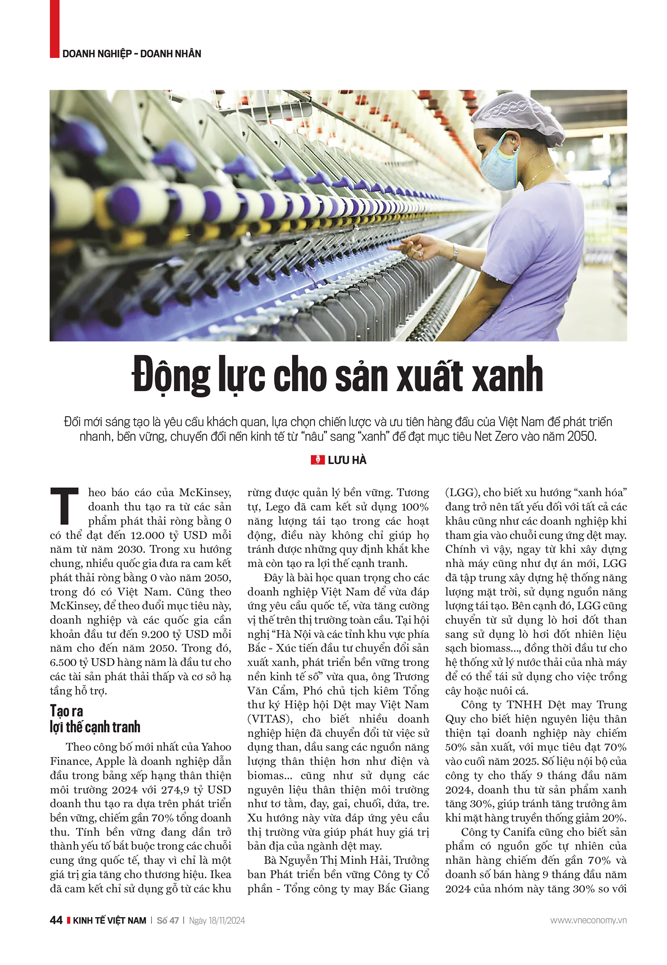
The Electric Evolution: Unveiling VinBus and Its Strategic Calculations
VinBus is Vietnam’s first domestically produced electric bus and the country’s inaugural electric vehicle to be licensed for public transport services.
The Deadline Has Passed, Yet Ninh Thuan Has Only Implemented 13 Out of 17 Special Policies
Over the past five years, the province has implemented only 13 out of 17 policies outlined in the Government’s Resolution No. 115, dated August 31, 2018, on the implementation of special mechanisms and policies to support the socio-economic development and stabilize production and people’s lives in Ninh Thuan Province for the 2018-2023 period.
The Future of Aviation: Embracing SAF for a Sustainable Tomorrow
“The world is in a climate crisis spin” – this is an alarming ongoing reality. Following through on its commitment at the United Nations Climate Change Conference (COP26), Vietnam has officially approved its National Green Growth Strategy, with a bold NetZero 2050 vision.


